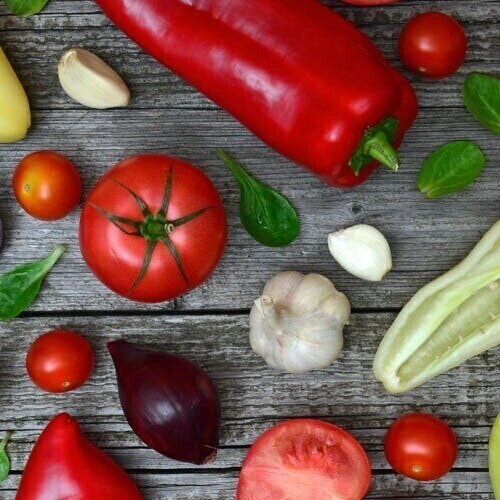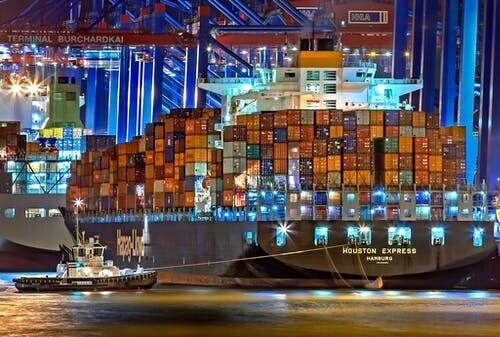VAT and Brexit - how do the changes affect goods?

posted 5th January 2021
After four and a half years, or what seemed in real time like an eternity, a trade deal was finally struck between the UK and EU. As deal rumours came and went over the past year, and finally a very large document emerged as the final deal, it has not been the easiest change to decipher and plan for. However, we now have confirmation on the deal, and what this will mean for businesses who trade with the EU.
This article sets out what importers and exporters of goods should consider for VAT and duties post Brexit. For those who buy and sell services, fear not! There is a separate article on VAT change for services post Brexit here.
1. What was the situation pre-Brexit?
Prior to Brexit, sales of goods cross border within the EU were treated as follows:
- Goods sold to businesses were zero rated as dispatches in the country of origin, with the goods usually moving freely through port to the business customer. The business customer would self-account for VAT in their country on their VAT return; and
- For goods sold to individuals, VAT had to be accounted for by the supplier. For convenience, there were "distance selling" thresholds set by each country. If the annual value of goods sold B2C to customers in that member state was below the threshold, the UK supplier could account for UK VAT. If the annual value exceeded the threshold, the UK supplier was required to register in that member state and account for VAT there.
2. VAT checklist for imports and exports post Brexit
The above rules still of course apply for goods moving between EU member states, it is just that the UK is no longer a member state. With this in mind, we need to look more closely at the rules which exist for exports out of the EU, and imports into the EU. This is covered in detail in the rest of this article but, in summary, the following areas are key:
- VAT liability and place of supply - what is the UK VAT liability? Is there any VAT accounting in the country of export/import? Who accounts for the VAT?
- EORI number - Do you need one? Do your customers/suppliers have one?
- Customs declarations and registrations - can you take on the responsibility yourself? Would it be HUGELY easier to appoint someone else (almost certainly yes!)?
- Commodities codes - What is the correct code for your exported goods? Has the supplier got this correct for imported goods?
- Duties - are duties required to be paid? How could you avoid them? How could you defer them?
- Simplifications and deferments - could you make use of these? How?
There may of course be other areas specific to your business and additional rules for the types of goods you import/export. As such, I would always advise seeking advice for your business circumstances.
3. UK businesses exporting from the UK to the EU
VAT liability and place of supply
In very simple terms, exports of goods from the UK to anywhere in the world should be zero rated for UK VAT purposes. This has always been the case for exports of goods to non EU countries (both B2B and B2C). However, I say "should" because this is subject to the following criteria:
- The goods are exported from the UK within the relevant time limits post-sale (usually three months);
- You obtain evidence (official, commercial and supplementary) to prove export; and
- For indirect exports (where the customer arranges transportation) obtain evidence of this, and that the goods are not used prior to leaving the UK.
There may or not be liabilities at the customer's end. These may or may not be payable by the customer or by the UK supplier, and this will depend on local rules.
Going forward, the rules for sales to EU businesses and consumers will more closely resemble the rules for exports to non-EU customers. This means:
- Subject to the conditions of export, goods leaving the UK will be zero rated in the UK;
- We know that EU member states do expect VAT to be paid locally. The question is who pays this VAT?
For sales to businesses, we would typically expect that these businesses will self account for VAT locally as "import VAT" in their country. This should omit the need for the UK business to register locally. There are of course various exceptions to this (for example if you store goods in the EU rather than sending directly to the customer).
However, this will not be the case for sales to consumers. In these cases, depending on the local system, the UK supplier may be required to register for VAT overseas in the customer's country. The alternative to this would probably be that the goods would not clear port until the consumer themselves settled the VAT bill at their end (unlikely to be a popular choice for most businesses).
In either case, businesses should ensure that they confirm with a local advisor whether they would be required to register for VAT in the destination country. We have contacts in most EU countries, and can also recommend VAT registration/filing services in most EU countries at reasonable rates (although I would note that, unfortunately, VAT compliance services in the EU are typically more costly than that of the UK due to added complexities) so please do shout if this is something you need to consider.

EORI number and Customs declarations
Businesses importing or exporting will need to apply for a UK EORI number beginning with GB (EU) or XI (Northern Ireland), and confirm the EU EORI number of all your EU business customers. If the business customer doesn't have one, it will need to apply for its own EORI number locally before it can receive goods through port from you. This identifies the exporter/importer for goods declarations.
There are various additional procedures for Customs clearance, including declarations and system registrations. The simplest way around this is to use a freight forwarder, customs agent or broker, or fast parcel operator, and this is strongly suggested in order to avoid delays and errors (and huge amounts of your own time!). HMRC's website has a list of these here.

Commodity codes
When exporting, you will need to ensure that your goods are classified with the correct commodity code, which will be required by the Customs agent. The commodity code will determine what amount of VAT and duty (if any) the importer will need to pay at their end. As such, it is important to ensure that this is correct.
There is a very comprehensive list on HMRC's website here. In many case when I have done commodity code classifications before for exports and imports, there can be a number of codes which seem to be correct. You of course want to ensure that the correct code is chosen but also that VAT and duties are not overpaid.
Duties
It was widely reported that the Trade Deal meant that goods could be traded with the EU free of Tariffs. Whilst this is true for the most part, the goods will first need to meet the Rules of Origin criteria. This basically means that, in order to benefit from the zero tariffs, the goods must have materially originated from the UK or EU and not from third countries (for example, you can't import a product from the US and then sell it on to a German customer, as it is, tariff-free).
Were you have only used materials from the UK or EU in your product, this will be relatively straightforward to identify. However, the rules are a little more complicated where a number of different raw material sources have been used, and I would advise you seek assistance from a Customs specialist here. In any case, in order to ensure the zero tariff for UK/EU originating products, exporters should:
- Hold evidence that the goods meet the relevant rules of origin before issuing a Statement on origin;
- Consider whether declarations from suppliers are needed (i.e. to trace the materials);
- Provide your customer with the Statement on origin on a commercial invoice or other commercial document that describes the goods (or supporting documents and records if your customer is claiming preference using their “importer’s knowledge”).
- Maintain records for at least 4 years.
.
UK businesses importing goods from the EU to the UK
VAT liability and place of supply
Similar to the above, the new rules for B2B imports from the EU will closely resemble the pre-Brexit rules for imports from non-EU countries. That is, subject to the conditions above, the supplier should zero rate the sale in their own country, and the business importing the good into the UK would be responsible for paying UK import VAT locally.
You will also need:
- To obtain an EORI number starting with GB or XI to ensure that you can be identified as a cross border goods trader.
- To appoint a freight forwarder/customs agent/fast track parcel operator to handle customs declarations on your behalf. It is possible to do this yourself but it is strongly advised to use an intermediary here.
- To confirm that the commodity code applied by your supplier to the product is correct (I have seen a couple of situations where customers have never checked, and had been overpaying VAT and duties for many years!)
- To ensure you claim preference for zero tariffs on goods originating from the EU, and that your supplier has provided you with the relevant information to allow you to do so.
Please see the more detailed explanations of these terms in section 3 above, alongside links to relevant sections of HMRC's website.

Import VAT postponement and duty deferments
From 1 January, most businesses established in the UK and registered for UK VAT can account for import VAT on their VAT return. This is a significant change from the previous provisions for imports, as businesses had to account for VAT directly to Customs at port.
This should be possible where you use the goods within your business, and you ensure that your VAT number is provided on your customs declaration - when using a freight forwarder or other agent (as I expect most will do) this should be notified to them. You will need to ensure that you have access to your postponed import VAT statement in advance of the first relevant return. I would also advise that you confirm the exact procedure for your business with an advisor before using this option, to ensure that you qualify and that your VAT accounting is complete and accurate.
There are additional rules for accounting for VAT on the VAT return when delaying VAT and duties in the period 1 January to 30 June 2021 so please ensure that you check these out for your business.
A duty deferment account can also be an advantage for importers because, instead of having to pay VAT and duties upon arrival, the goods will come through port automatically, and the relevant duties are paid once a month. This is recommended for all regular importers and can be accessed on HMRC's website here.
I hope the comments above are useful to those of you trying to navigate the seemingly complex area of VAT on imports and exports. I think its clear that the main challenges here will be administrative. The good news with this is that, once you have set up a good admin procedure, this should give relative ease for imports/exports from a VAT and duties perspective. As always, these types of issues are much easier to sort in advance, rather than 3 years down the line (I speak from experience having untangled some errors on import VAT and duties for a well known restaurant chain some years back!). As such, if imports and exports are new to you, I would advise that you seek help from VAT and Customs advisors in the initial set up stage.
If you would like to discuss any of the above, or would like to book a Brexit consultation for your business for a reduced fee, please contact me on 07971 642789 or laura@vatnav.com.


